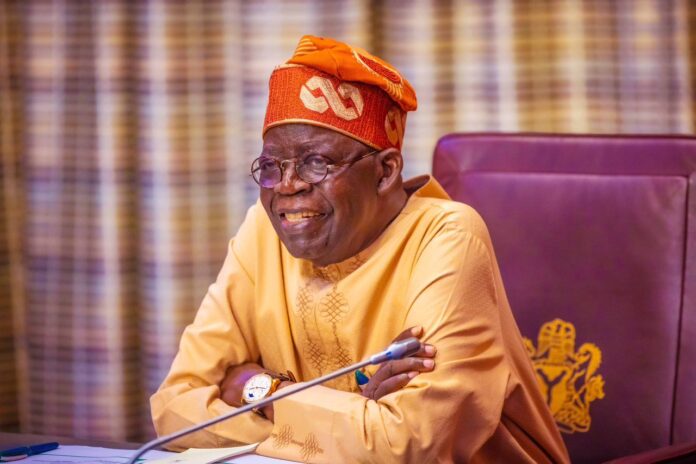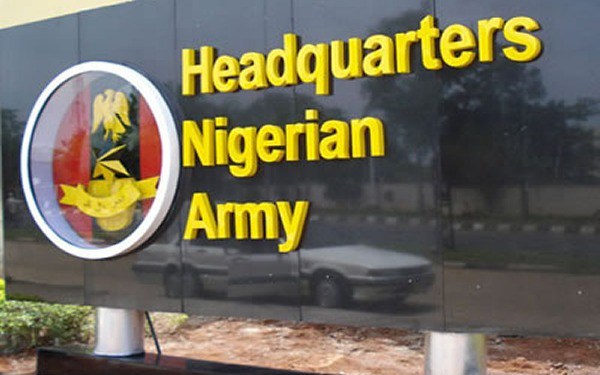The significance Of Tinubu’s First Week Of 2024, By Tunde Rahman
There couldn’t have been a better predictor of what to expect from President Bola Tinubu in 2024 than the way and manner he began the New Year. For the President, 2024 started on a business like, work-filled note.
While many were still savouring the New Year, the Nigerian leader cut short his Christmas/New Year holiday in Lagos on January 1, returned to Abuja to sign the N28.7 trillion 2024 Appropriation Bill passed by the National Assembly.
It was his first assignment in the New Year. The way he did it demonstrated the seriousness and patriotic commitment he brings unto the exalted job.
For him, nothing must stand on the way of the onerous responsibility bestowed on him. Senate President, Godswill Akpabio and House of Representatives Speaker, Tajudeen Abbas were shocked to learn the President had returned to Abuja and ready to sign the budget.
Since that first day of the year, it has been one impactful governance step and important decision after another. Indeed, it was one week of 2024 to remember. It reminds me of a song by Canadian rock band, Barenaked Ladies with the same title “One Week”. The song was released as the first single from their 1998 album, Stun.
The song is unique for its significant number of pop culture references, and remains the band’s best-known song. According to Wikipedia, the song reached No.1 on the US Billboard Hot 100.
In one week of 2024 to remember, President Tinubu made pivotal and landmark decisions which have been widely applauded.
Critic-turned-admirer of President Tinubu, Reno Omokri, catalogued some of these important decisions and developments in a recent tweet.
The decisions include the suspension of the Minister of Humanitarian Affairs and Poverty Alleviation, Dr. Beta Edu, and Coordinator of the National Social Investment Programme Agency, Hajiya Halimotu Shehu, for alleged financial transgressions and the ongoing investigation by the Economic and Financial Crimes Commission to determine their guilt; the summon by the President of another minister alleged to be involved in a controversial contract; the drastic reduction in the entourage of the President’s domestic and international travels; the banning of the money-for-degree universities in Benin Republic, Togo and other countries; and the clearing of the N12billion outstanding allowances and other arrears for the Super Eagles, taking part in the African Cup of Nations tournament beginning this weekend. Arrears owed other national teams were also paid by the President.
In that preceding week, the Bola Tinubu administration embarked on the payment of wage support benefits to civil servants, the disbursement of N105.5 billion for emergency repair of 266 roads across the country, the launch of the automated passport portal and the unfolding of plans to build a new Chinese-funded steel plant in Nigeria following on the heel of a visit to China by the Minister of Steel Development, Shuaib Abubakar Audu.
The swift suspension of Betta Edu, one of the visible ministers at present, pending the full investigation of the alleged scandal in her ministry not only demonstrates there are no scared cows in the anti-graft crusade, it will also serve as deterrent against others who may otherwise believe the present government is business-as-usual.
However, as some have argued, the minister should not be pilloried until after the full investigation of the allegations and her culpability or otherwise established.
Perhaps, the most exciting of the President’s decisions during that important week, in my view, is the resolve to cut the cost of governance by drastically reducing the number of people in his entourage on local and international trips.
President Tinubu directed that top government functionaries, dignitaries and aides on his travels be slashed by 60 per cent, more than half.
On local trips, the President, for instance ordered that, in the area of security, his team should rely more on the capacity of the security establishment and existing protocols in the host states.
It must be pointed out here that when the President visits a state for instance like his recent visit to Lagos during the Christmas/New Year holiday, during which he decided to observe the Jumat at the Central Mosque in Lagos Island, the long stretch of vehicles noticed in his convoy are not entirely his own. Some dignitaries in Lagos, top security officers, top traditional rulers, political associates and many others simply joined the entourage to the mosque at no prompting of the President.
The importance of cutting the number in the President’s travels apart from the concomitant reduction in total cost of the trip is unmistakable.
First, it is in tandem with the demands of the present challenging times when prices of goods and services have skyrocketed owing to what many tie to the prevalent foreign exchange rate.
Second, by slashing the presidential entourage, President Tinubu has again demonstrated leadership by example.
He has shown he fully understands what the people are experiencing at present and shares in their pains, which he says will be temporary, following his New Year Day speech.
Indeed, the cost of governance and administration in Nigeria is high and it has become imperative to bring it down. Every possible avenue must be employed to do this.
It is estimated that the country mostly spends over 75% of her federal budget on recurrent expenditure, leaving less than 25% for capital expenditure.
The present administration is set to change this governance narrative. For instance, in the N28.7trillion 2024 budget, recurrent expenditure was pegged at N8.7tr and capital expenditure at N9.9tr. This trend is expected to continue going forward.
– Rahman is a Senior Presidential Aide





